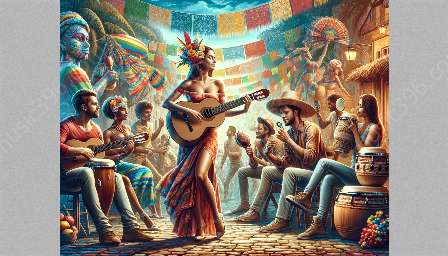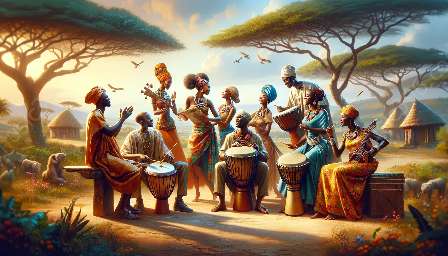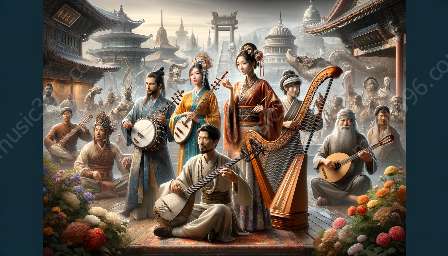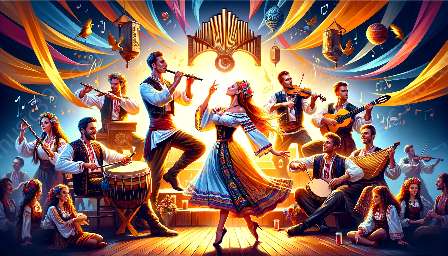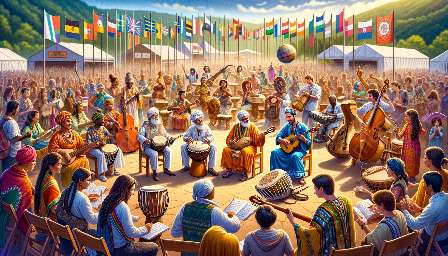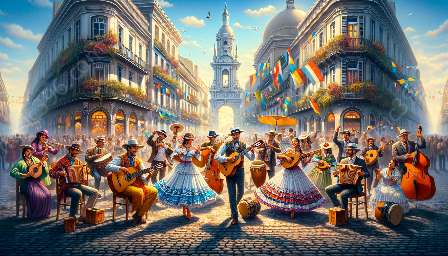The vibrant and diverse musical traditions of South America have long been intertwined with the region's rich history of political activism. From the rhythms of the Andes to the passion of tango, the music of South America has served as a powerful means of expressing social and political messages.
South American Folk Music: A Rich Tapestry of Tradition and Resistance
South American folk music reflects the continent's cultural diversity, drawing on indigenous, African, and European influences to create a rich tapestry of musical expression. Throughout history, folk music has been an integral part of social and political movements, providing a voice for marginalized communities and expressing the struggles and triumphs of the people.
Andean Music: The Sounds of Resistance and Resilience
The indigenous peoples of the Andes have a rich musical heritage that serves as a powerful expression of resistance and resilience. The haunting melodies of the pan flute and the rhythmic pulse of the charango convey the profound connection between the Andean people and their natural environment. These musical traditions have played a crucial role in preserving indigenous culture and asserting the rights of marginalized communities.
Tango: Passion and Politics in Musical Form
Originating in the diverse urban landscapes of Argentina, tango emerged as a musical genre that reflected the social and political tensions of its time. With its roots in the marginalized immigrant communities of Buenos Aires, tango became a powerful means of expressing the struggles and joys of the disenfranchised. Through its evocative melodies and intimate lyrics, tango served as a poignant commentary on the social inequalities and injustices of Argentine society.
The Intersection of Music and Political Activism
The deep-rooted connections between South American folk music and political activism are evident in the ways in which musicians have used their art to inspire social change and political awareness. Musicians such as Mercedes Sosa, Victor Jara, and Violeta Parra have become iconic figures in the history of musical activism, using their voices and instruments to advocate for social justice and human rights.
The Nueva Canción Movement: Uniting Music and Social Change
During the mid-20th century, the Nueva Canción movement emerged as a powerful musical and cultural force in South America. Fueled by the desire to address social and political issues through music, artists associated with the movement sought to create songs that spoke to the experiences of ordinary people and contributed to the struggle for social justice. Through their music, Nueva Canción artists played a pivotal role in raising awareness of political repression, economic inequality, and human rights abuses.
Musical Resistance and Dictatorship: The Power of Song in Troubled Times
Throughout the turbulent history of South America, musicians have continued to be at the forefront of political resistance, especially during periods of authoritarian rule. Artists such as Victor Jara in Chile and Atahualpa Yupanqui in Argentina faced persecution and censorship for their outspoken lyrics and activism. Despite the risks, these musicians courageously used their art to challenge oppressive regimes and raise the voices of the oppressed.
Global Impact: South American Folk Music and World Music
The vibrant sounds of South American folk music have transcended geographical borders to captivate audiences around the world. As a key component of the global World Music movement, South American folk music has enriched the musical landscape with its distinctive rhythms and poignant storytelling. Through collaborations with international artists and the integration of traditional instruments and melodies into contemporary music, South American folk music continues to inspire and influence global musical expression.
Renewed Relevance: The Role of South American Folk Music in Contemporary Activism
In the modern era, South American folk music remains a potent force for political activism and social change. Artists continue to harness the power of traditional musical forms to address pressing issues such as indigenous rights, environmental conservation, and social justice. By blending ancestral traditions with contemporary sounds and themes, musicians are shaping a musical landscape that reflects the ongoing struggles and triumphs of diverse communities.
From the Andean highlands to the bustling streets of Buenos Aires, South American folk music thrives as a living testament to the enduring connections between music and political activism. Through its rich traditions and unwavering spirit, South American folk music continues to inspire hope, resilience, and solidarity in the pursuit of a more just and equitable world.

